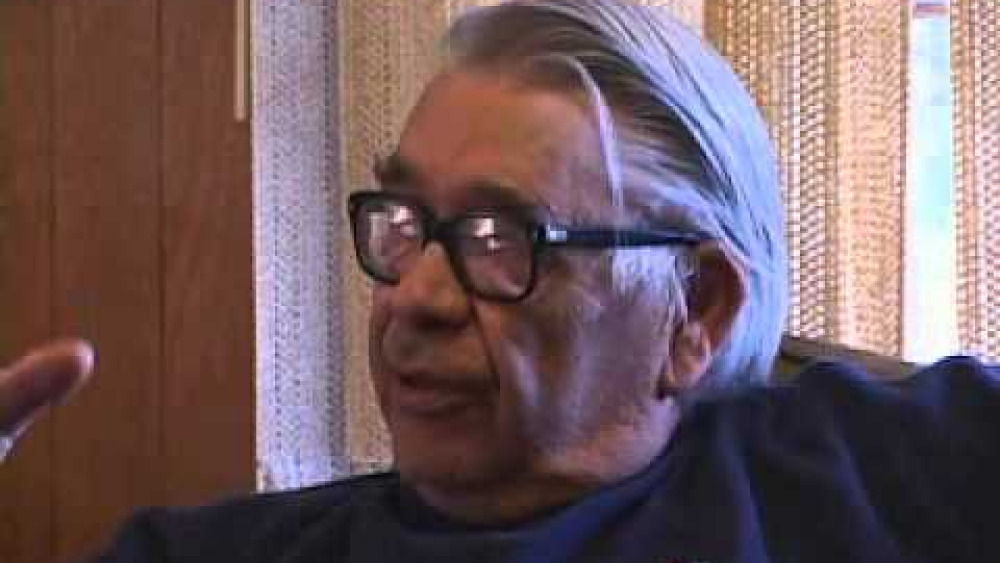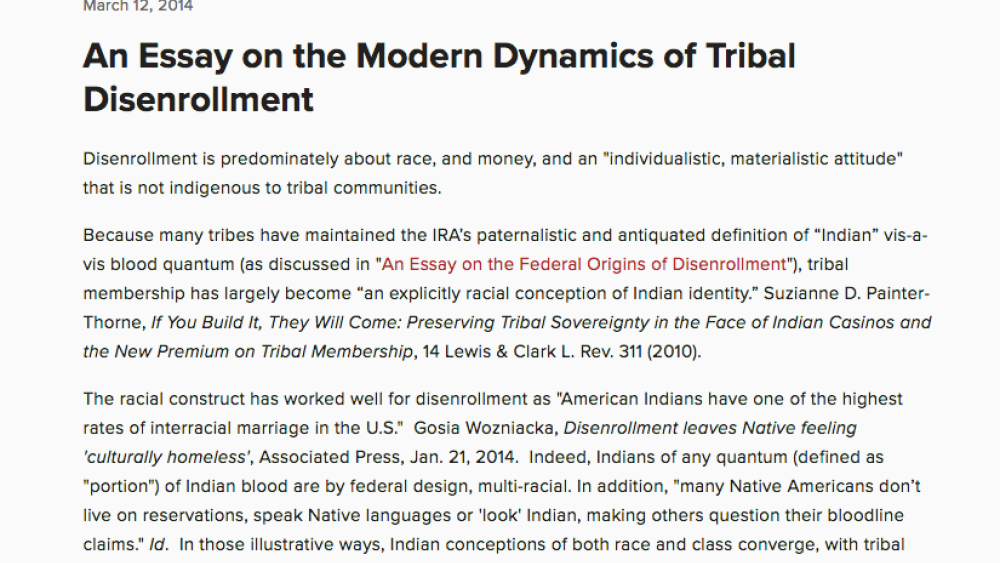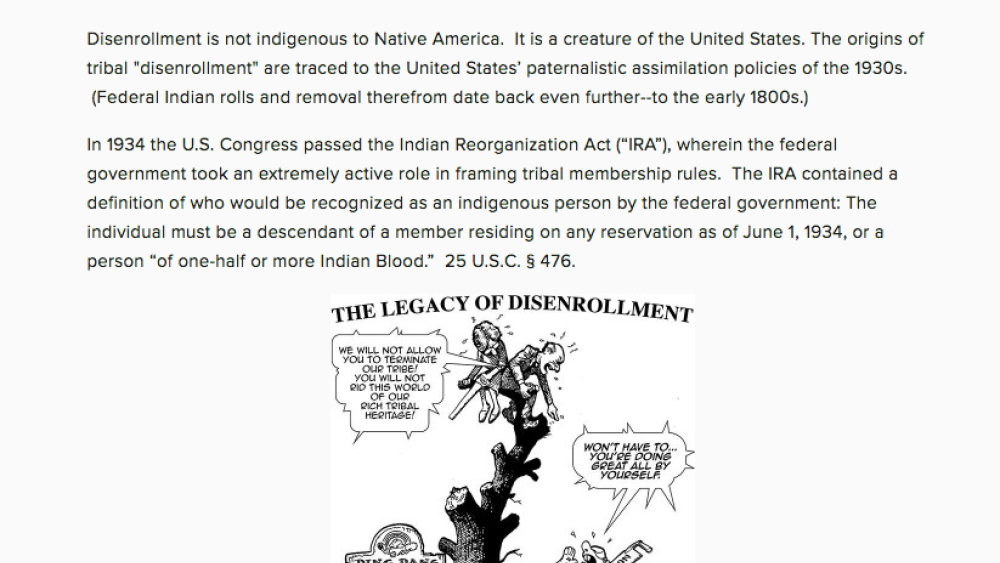Indigenous Governance Database
disenrollment

Vine Deloria's Last Video Interview
American Indian author, theologian, historian, and activist Vine Deloria, Jr. (1933-2005) talks with documentary film producer Grant Crowell about traditional Indigenous governance systems and criteria for citizenship, the impact of colonial policies on tribal citizenship (specifically the effects…

Tribal Per Capita Poverty - How About Disenrollment Bankruptcy?
“In November, a [Las Vegas] Review-Journal reporter and photographer encountered one of the disenrolled, 52-year-old Darla Hatcher, sleeping with her meager belongings in front of an upholstery shop in the homeless corridor. By way of introduction, she gestured toward nearby tribal land and said…

An Essay on the Modern Dynamics of Tribal Disenrollment
Disenrollment is predominately about race, and money, and an “individualistic, materialistic attitude” that is not indigenous to tribal communities. Because many tribes have maintained the IRA’s paternalistic and antiquated definition of “Indian” vis-a-vis blood quantum (as discussed in “An Essay…

An Essay on the Federal Origins of Disenrollment
Disenrollment is not indigenous to Native America. It is a creature of the United States. The origins of disenrollment are traced to the United States’ paternalistic assimilation policies of the 1930s. In 1934 the U.S. Congress passed the Indian Reorganization Act (“IRA”), wherein the federal…
Pagination
- First page
- …
- 1
- 2
- …
